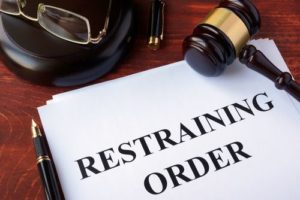Are You Looking for Legal Help regarding Protective Orders or Restraining Orders? Call Us Today

When someone, especially with whom you are close, threatens or harms you, the legal system employs protective and restraining orders. Depending on the specific type of case, a judge can prohibit the offending person from contacting, harassing, threatening or abusing you; going to places where you live, work or attend school; and can prohibit that person from owning a gun.
These protective measures can come from criminal protective orders or civil restraining orders. In many cases, you might want or need both kinds of remedies. While they are often complementary, there are differences. We explain them below.
Who Gets the Protection?
A Los Angeles lawyer for restraining orders represents people in getting restraining orders against family members and close acquaintances. To be eligible, you must have a close relationship with the person against whom you seek protection. These relationships fall into one of the following:
- Current spouse or registered domestic partner
- Divorced or separated spouse
- Parent seeking against a child (often an adult child)
- Child against a parent
- Siblings
- Parents of a child, even if the parents are not married
- Person whom you dated
Even if you do not qualify because of the lack of relationship, non-domestic violence restraining orders that prohibit contact, harassment, stalking or other harmful or threatening conduct are available.
While many criminal protective orders arise from incidents of domestic violence, you need not have a family or close relationship with the defendant for the court to issue such an order.
What Do You Have to Prove to Get a Restraining Order?
To get a criminal protective order, there must exist an underlying criminal prosecution. That requires allegations and evidence that the person from whom you seek protection has committed a crime.
Many types of behavior support both charging the defendant with a crime (and, thus, getting a criminal protective order) and a restraining order. These include:
- Assault and battery
- Communicating threats
- Stalking
- Sexual abuse
- Physical abuse
Getting protection from a criminal protective order does not necessarily require a conviction. In fact, judges can and often enter these orders upon the defendant’s arrest or in a pretrial hearing or proceeding. The prosecutor must show the defendant has harmed you, placed you in fear, attempted to get or keep you from testifying, or threatened any of these things.
What Do I Need to Get a Restraining Order?
A civil protective order requires that you prove physical or mental abuse, stalking, threats or other behavior that places you in fear of your spouse or significant others. This happens after a full hearing where you present yourself, other witnesses and other evidence. That means the civil protective order is the ultimate aim of the proceeding.
In the civil case, you might answer what do I need to get a restraining order with texts, emails or social media posts from the defendant. This evidence may show that you have faced harm or have been placed in fear. The prosecutor in your case may also want these items of evidence in getting a criminal protective order.
Who Initiates: The Prosecutor or You
The prosecutor of your case requests a criminal protective order. These efforts to be sure can benefit you significantly. A criminal protective order lasts ten years and takes precedence over any conflicting provisions of a restraining order issued by a civil court.
That does not necessarily mean that the answer to hiring a legal professional is no. Bear in mind that a criminal proceeding is entitled as the “People” versus the particular defendant. Although you as the victim have a strong interest in the outcome and in getting an order, the District Attorney does not take you as a client. The prosecutor represents the State of California or the citizens at large and seeks to enforce laws that promote public safety and peace.
As a result, you do not have the ultimate say over what happens in the prosecution. Ironically, this could help you because the District Attorney does not have to dismiss the proceeding even if you insist. If the prosecutor believes that there exists evidence even without your testimony, that prosecutor may anyway pursue the criminal protective order. Your hired legal counsel can keep track of the criminal proceeding for it might affect your efforts to get a civil restraining order.
Additionally, the District Attorney does not pursue damages against the perpetrator or others who may have caused you harm. To pursue civil damages such as pain and suffering, medical expenses and lost wages or earning capacity arising out of the attack, you may need the services of a family law attorney. The claims may include assault, battery and intentional infliction of emotional distress.
Either on your own or with the help of an attorney, you initiate a lawsuit for a civil protective order. As a private litigant, you control the outcome of the case. You also do not face some of the evidentiary constraints faced by a criminal prosecutor.
In particular, the failure of the defendant to testify comes with different implications in a criminal case than a civil case. A defendant has a constitutional right to remain silent. In a criminal case, the prosecutor cannot argue the defendant’s silence as proof or any indication of guilt. While you cannot force the person against whom you seek protection to take the stand or confess, a court can take the absence of any explanation by the defendant into account.
What Court Enters the Order?
As the name suggests, a criminal protection order comes in criminal court.
If you seek a civil restraining order because of domestic violence, contact a lawyer who practices in family court. Judges in this court can enter these protective orders. Family court also has mediation services with which you can negotiate a consent protective or no-contact order with the opposing party. In fact, issues such as child custody and even the division of property may accompany domestic violence or other restraining order cases. These disputes can be resolved as part of mediation.
Do I Need an Attorney for a Restraining Order Hearing?
In criminal cases, protective orders come via the requests of the prosecutor. The civil courts do not provide you legal counsel for civil restraining orders. You may use the forms to request an order on your own.
Having a lawyer for a restraining order affords you an advocate for you to get yourself and your family protection. If negligent security allowed someone close to you to harm you because of illegal acts or violate a criminal protective order or a restraining order, reach out to a reputable law firm that strives to put clients first.
